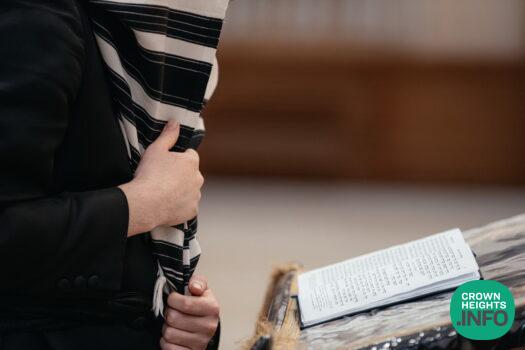
Weekly Story: The Rebbetzin
by Rabbi Sholom DovBer Avtzon
This week was Chof Beis Shevat, the yahrzeit of Rebbetzin Chaya Mushka. Last Shabbos I heard the following story and thought from Rabbi Mangel sheyichye.
As always your feedback and comments are appreciated.
He said: I was asked by Nshei Chabad to speak on the first yahrzeit of the Rebbetzin. and I accepted and at the gathering I said: I don’t know stories about the Rebbetzin that are not well known. So instead, I am going to say something that will bring out her greatness.
When the Tzemach Tzedek was born, his mother Rebbetzin Devorah Leah was unable to nurse him, so they hired a Jewish lady in Liozna to nurse him. However, before the agreement was finalized she was instructed to go to the Alter Rebbe and hear the certain guidelines that he is going to give her.
Entering the Rebbe’s room the Rebbe said; when you nurse him even in middle of the night make sure that you wash negel vasser beforehand and that you also wash the child’s hands negel vasser. Additionally, you are to make sure that his yarmulka is on and finally before he begins nursing, you should say a brocha [shehakol] out loud, in order that the infant will hear it. The Rebbe continued, as an additional reward I am blessing you with longevity.
Some years later she moved to the town of Lubavitch. [Either before the Mitteler Rebbe settled there or afterwards.]
The Alter Rebbe’s brocha was fulfilled and she lived for many years. When she felt that her time to leave this world was imminent, she asked the people close to her to ask the Rebbe [the Tzemach Tzedek] to please come to her house, as she wishes to talk to him.
They replied the Rebbe doesn’t visit every ill person in Lubavitch, why would or should he come to you?
You will see he will come, she replied, because I nursed him when he was an infant. Hearing this, one of them went and gave over the woman’s request noting that she is on her deathbed. The Tzemach Tzedek replied that he was coming over and immediately stopped whatever he was doing.
When he arrived the lady thanked him for coming and said, I don’t have anyone to say kaddish for my neshoma. So I am requesting that being that I faithfully fulfilled your grandfather the Rebbe’s conditions [even in the winter when the water was freezing], you will daven and say the kaddish for my neshomah.
The Tzemach Tzedek replied, to daven at the amud as the shliach tzibbur, I can’t accept upon myself, however, I will definitely say the kadish as you requested.
She said that is fine with me and the Rebbe left.
The following morning she passed away and was buried in the late afternoon after the Rebbe had already davened Mincha. By maariv the Rebbe said the two kadaishim as he had promised That night the woman came to the Rebbe in a dream and said, I take back my request. She explained, right after the Rebbe recited the kadaishim for my neshomah. I was elevated to such a lofty level that I feel uncomfortable there, as I know I don’t belong there together with those righteous people. [If the Rebbe can appoint someone else I would be appreciative.]
So you see that saying the kaddish continuously elevates the neshoma of the one who departed.
So now imagine to what levels the Rebbetzins neshoma was elevated by the Rebbe as he said the kaddish throughout the entire year. But no matter to which level she reached, she is comfortable in those levels.
Rabbi Mangel concluded, the Rebbe requested that he receives a copy of what was said at that event and later on instructed that it be printed.
I will add a thought I heard this week in the name of the Mashpia Reb Peretz Mockin a”h.
The Possuk says (in this weeks parsha) If two men are in a fight and one knocks the othe down, but doesn’t kill him, if he recovers the aggressor has to pay for a minimal salary and his health expenses.
Reb Peretz said: When the two souls are fighting who can control the person and the Yetzer Hora knocks the Yetzer Tov down, but doesn’t completely conquer him.
If the person wants to stand up again the possuk says rak shivto yiten and Reb Peretz explained The possuk is saying At minimal the person has to give his Shabbos to Hashem. Learn Chassidus before davening, come to davening on time and daven carefully, without
rushing through it.
Rabbi Avtzon is a veteran mechanech and the author of numerous books on the Rebbeiim and their chassidim. He can be contacted at avtzonbooks@gmail.com












